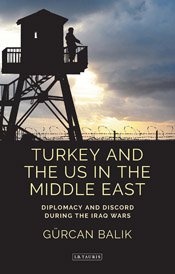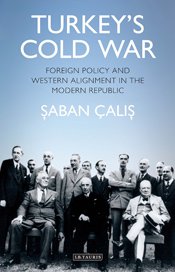
The print version of this article can be downloaded as a PDF file.
Sir David Logan was Chairman of the British Institute at Ankara until November 2016. He served as British Ambassador to Turkey from 1997 to 2001.
History is notoriously one damn thing after another. What makes it interesting is which things are post hoc and which are propter hoc. No country makes study of this more important than does Turkey, sucked as it is towards the vortex of Middle Eastern turmoil. It is the mission of the British Institute at Ankara, one of the British Academy-supported British International Research Institutes, to understand the history of Turkey and to put contemporary issues in the region in historical context.
Only 10 years ago, the defining features of Turkey were its multiparty democracy and its membership of NATO for more than 60 years. It was the bastion of the alliance’s southern flank, with EU accession negotiations in progress since 2004, and an economy growing faster than all others in the world apart from China’s.
Now we think of populist government, terrorism, regional instability, Russian opportunism, the failure of Western strategic vision, and the loss of external traction on the part of the EU. All these have impacted forcibly on Turkey’s prosperity, stability and governance. How has this come about?
For some understanding of what has happened we need to go back at least to the transformation of the Ottoman Empire into the Turkish Republic and the states that were artificially created in the Middle East from part of the rest of the Empire by the victorious British and French after the First World War.
The creation of a westward-looking secular Republic from the ashes of the Empire was an extraordinary achievement by Atatürk, one of the great statesmen of the first part of the 20th century. However, Atatürk died prematurely; and his reforms never gained the wholehearted adherence of all Turks. One way of regarding the current dominance of President Erdoğan’s party, and the loyal support of many Turks for measures which many outsiders regard as undemocratic, is as retaliation for years of rule by Atatürk’s secularist elite which ignored and repressed the concerns and traditions of the devout and conservative Anatolian population.
Moreover, the current turmoil and crisis in states such as Syria, Iraq and Lebanon, carved out of the former Ottoman realm by Sykes and Picot, arguably demonstrate a Western failure to understand the inapplicability of the alien Western notion of the nation state to the region, where society was underpinned by identity derived from ethnicity, tribe or sect.
After the Second World War, global politics was dominated by the confrontation between the Soviet Union and the West. In this context, Turkey assumed great strategic importance. It shared a border with the Soviet Union and, across the Black Sea, with other Warsaw Pact States. It controlled Soviet access from the Black Sea to the Mediterranean via the Bosphorus. Membership of NATO and of CENTO (whose other members were Iran, Iraq, Pakistan, and the UK) contained risks as well as advantages for Turkey, but connection with the West (a key part of Atatürk’s legacy) and protection against the old enemy, Russia, provided by membership of NATO prevailed. Turkey’s first approach to the EEC, as it then was, was made in the 1960s. It represented an expression of the country’s European destiny rather than an expectation of imminent membership. However, by the time of the break-up of the Soviet Union and the reconfiguration of post-communist Europe, Turkey’s objective of membership became concrete, and the domestic reform process was carried forward so successfully, particularly at the start of the AKP era in 2002, that negotiations formally started in 2004. Good progress was initially made.
The tectonic plates started to shift with the fall of the Soviet Union and the liberation of the Eastern European states. The loss of Soviet influence, both generally and specifically in Turkey’s region (for example in Syria), led to the release of hitherto suppressed nationalist, ethnic and sectarian differences in the Balkans and the Middle East, often aggravated by the ambitions and whims of local dictators.
In 1990, Saddam Hussein invaded Kuwait. Turkish President Özal threw his weight behind the American-led coalition against him, calculating that Turkey’s interests lay in a continuing close relationship with the sole remaining superpower. But he did so in the face of opposition from most Turks, who believed that the cost, in terms of regional political relationships, the risk of the break-up of Iraq, and the loss of trade with Turkey’s Arab neighbours was too high a price to pay. Both the Foreign Minister and the Chief of the General staff resigned.
Further strains on Turkey’s traditional foreign policy bearings came with the violent dismemberment of Yugoslavia. Many Turks come from the old Ottoman lands in the Balkans. They were angered by what they saw as initial Western indifference to the fate of the Bosnian Muslims at the hands of the Christian Serbs.
Closer to home, the demise of the Soviet Union led to other new foreign policy challenges, with conflict breaking out between newly independent Armenia and Azerbaijan, with which Turkey has close ethnic and cultural links. The enlargement of the EU gathered impetus. But Turkey resented being overtaken by the Eastern Europeans in the EU membership queue, and rightly regarded the accession of southern Cyprus, before the island was reunited, as a betrayal by the Europeans.
Throughout the 1990s, the US aim of getting rid of Saddam was a major source of policy difficulty for Turkey. The relationship with the United States remained important and Turkey came under heavy US pressure to play an active role in bringing down Saddam. But the likely damage to the Turkish economy and to Middle Eastern relationships remained a serious concern. Besides, fears about the risks contained in a break-up of Iraq were now aggravated by the rise of domestic terrorism from the Kurdish PKK because of the latter’s links with some of the Kurds of Northern Iraq.
9/11 settled the American debate about how to bring down Saddam; preparations for war, which included invasion from the north through Turkish territory and the use of Turkish resources, began. The crisis coincided with the installation of the new and inexperienced AKP government in Turkey, which was confronted with the old dilemma in the starkest of terms. When the proposal to accept the Americans plans was put to the Turkish parliament, it was rejected by a small margin. (Ironically, particular concerns included the absence of a second Security Council resolution, and no convincing plan for post-Saddam Iraq, just as among most of the US’s Western European allies.) The furious reaction in the United States stirred a debate in both countries as to the value of the bilateral relationship.
Meanwhile, and only partly coincidentally, the new AKP government embarked on a fundamental foreign policy review. Unlike its secularist, military-influenced predecessors, it did not view its external relations exclusively through the optic of security; political interest, trade and historical relationships should be important drivers. Besides, policy should be based on the calculation that Turkey lay at the centre of a region of its own, where it had multiple and complex relationships, rather than at the edge of another region (Europe) in relation to which it appeared to be a perpetual and peripheral supplicant.
For a period, this new approach seemed very successful, in particular in relation to Turkey’s Arab neighbours to the south, with whom trade burgeoned and old historical and cultural connections were revived. Before long, however, the inherent flaws in a policy based on the notion of ‘zero problems with our neighbours’ emerged, and Turks started to joke that they had ‘zero neighbours without problems’. Support for President Morsi’s government in Egypt, toppled with Western acquiescence, led Turkey into the Sunni side in the increasingly confrontational Sunni/Shiite divide in the Middle East. Latterly, President Erdoğan seems to have actively promoted this sectarian approach.
Sectarianist division in the region was closely connected with the failure of Western policy towards Iraq, which left the country more at risk of break-up than ever (raising the prospect of an independent Kurdistan) as well as being partially occupied by ISIS, itself given Sunni credibility by Western error. The horrific dismemberment of Syria initially put Turkey in the position of supporting the Western alliance, at the cost of ISIS terrorist attacks in Turkey as retribution, and of confronting Kurdish forces in Northern Syria which they believe to be closely linked to the PKK, but which are also fighting alongside American forces against ISIS in Syria. These contradictions have placed strains on Turkish traditional relationships which come close to the unmanageable.
Meanwhile, the Syrian tragedy has had a major impact on Turkey’s complex relationship with Russia, now so different from the Cold War stand-off with the Soviet Union. Turkey is heavily dependent on Russia for energy; trade and tourism matter to both. But Turkey has ethnic ties to the Chechens (who have used Turkey as a haven) and with the Tatars of Crimea, now occupied by Russia. In November 2015, vehement Turkish opposition to Assad in the face of Russian support for the Syrian regime resulted in direct confrontation, with the Turks shooting down a Russian fighter allegedly in Turkish airspace.
However, the emergence of Russia as a key player in the determination of Syria’s future has led Turkey to accept that the removal of Assad, supported by both Russia and Iran, is no longer a feasible near-term objective. At the same time, the Turks regard the risk of the Kurdish enclaves on their border with Syria taking control of the entire Syrian side as an unacceptable threat. These are the Kurds who have been effective fighters against ISIS, supported by the United States. The result has been that the Turks decided to subordinate their hostility towards Assad to their concerns about the Syrian Kurds, and, distancing themselves from the United States, to co-operate with Russia to try to achieve a ceasefire and eventual settlement, culminating in the Russian/Turkish Security Council resolution of 31 December 2016.
These developments have taken place against a background in which the Turkish government now sees co-operation with Russia (and also China) as a way of demonstrating its semi-detached relationship with the West; and Russia probably has the ‘Finlandisation’ of Turkey as its objective. But semi-detachment is not stable. Turkish and Russian interests in Syria will be very hard to reconcile in the longer term. And, while Turkish and Western policies in the Middle East may not always coincide, the reasons why Turkey joined NATO and developed a steadily closer relationship with the EU reflect deep security, trade and societal affinities. These now need to be anchored in renewed and strengthened ties.
Responsibility for the relationship break down between Turkey and the West lies in part with neglect by an inward-looking European Union, preoccupied with economic challenges, and by a US administration uncertain and hesitant in pursuit of its overseas interests. Neither has been ready to invest the necessary political capital in its management. On the Turkish side, demanding policy challenges seem often to have been met not with prudent planning based on fundamental national interest, but on short-term opportunism, partly intended to irritate the West and partly to generate agreeable headlines for a domestic audience.
This situation is remediable. President Trump and new leaders in France and Germany in 2017 should recognise the importance of Turkey as a regional power and its centrality to management of the Middle East. President Erdoğan, for his part, should come to see that the threat of regional turmoil of Turkey can best be handled within the framework of policy rooted in stable relationships and long-term interest. But practical realisation of this community of interest requires courage, flexibility and commitment on both sides. And success will depend on a better understanding of the cultural, regional and historical factors which, since the end of the Cold War, have driven attitudes and policy on both sides. Lack of understanding and expertise in the Middle East has been heavily responsible for the mistakes by the West made in Iraq and elsewhere.
This takes us back to the British Institute at Ankara, whose Contemporary Turkey series, published in collaboration with I.B. Tauris includes titles such as Turkey and the Politics of National Identity, edited by Shane Brennan and Marc Herzog; Turkey and the US in the Middle East: Diplomacy and Discord during the Iraq Wars, by Gürcan Balık (published May 2016); and Turkey’s Cold War: Foreign Policy and Western Alignment in the Modern Republic, by Şaban Çalış (published January 2017). These are important contributions to the understanding of Turkey and its foreign policy relationships. There is an urgent need for this understanding if we are to rediscover the kind of alliance between Turkey and the West which serves the interests of both in today’s unstable Middle East.

